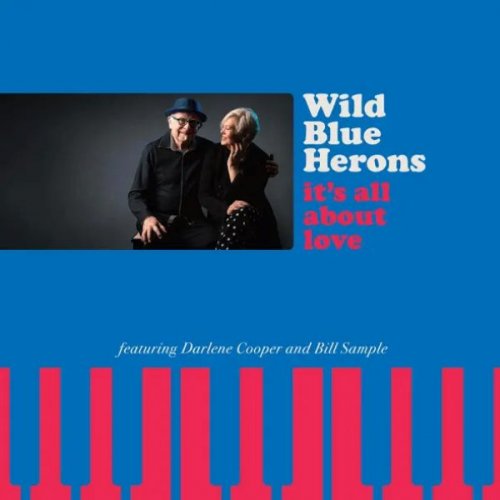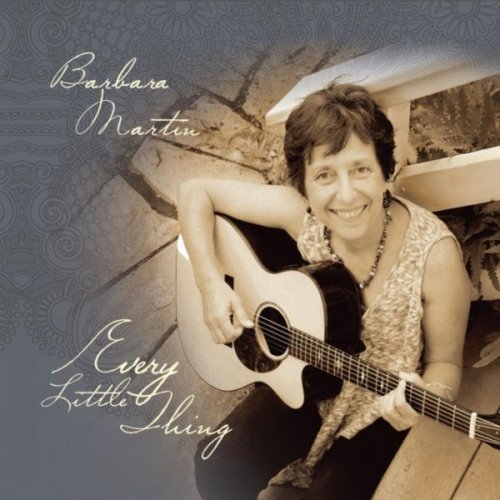Zuzana Ruzickova - J.S. Bach: The Complete Keyboard Works (20CD) (2016)
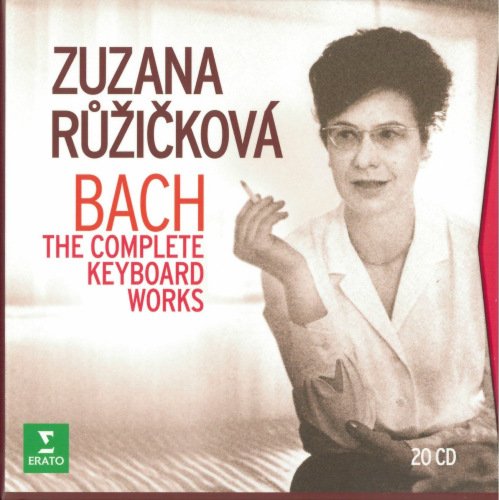
Artist: Zuzana Ruzickova
Title: J.S. Bach: The Complete Keyboard Works
Year Of Release: 2016
Label: Erato
Genre: Classical
Quality: FLAC (image+.cue,log,scans)
Total Time: 23:11:09
Total Size: 8.9 Gb
WebSite: Album Preview
Tracklist: Title: J.S. Bach: The Complete Keyboard Works
Year Of Release: 2016
Label: Erato
Genre: Classical
Quality: FLAC (image+.cue,log,scans)
Total Time: 23:11:09
Total Size: 8.9 Gb
WebSite: Album Preview
CD01
The Well-Tempered Clavier, Book I - Part I
[1]-[24] Preludes & Fugues, BWV 846 - BWV 857
CD02
The Well-Tempered Clavier, Book I - Part II
[1]-[24] Preludes & Fugues, BWV 858 - BWV 869
CD03
The Well-Tempered Clavier, Book II - Part I
[1]-[26] Preludes & Fugues, BWV 870 - BWV 882
CD04
The Well-Tempered Clavier, Book II - Part II
[1]-[24] Preludes & Fugues, BWV 883- BWV 893
CD05
[1]-[32] Goldberg Variations, BWV 988
CD06
[1]-[30] Inventions & Sinfonias, BWV 772 - BWV 801
[31]-[35] Suite in B flat major, BWV 821
[36] Fantasia in C minor, BWV 906
CD07
[1]-[5] French Suite No.1 in D minor, BWV 812
[6]-[11] French Suite No.2 in C minor, BWV 813
[12]-[17] French Suite No.3 in B minor, BWV 814
[18]-[23] French Suite No.4 in E flat major, BWV 815
CD08
[1]-[7] French Suite No.5 in G major, BWV 816
[8]-[15] French Suite No.6 in E major, BWV 817
[16]-[17] Chromatic Fantasia and Fugue in D minor, BWV 903
[18]-[20] Italian Concerto in F major, BWV 971
CD09
[1]-[9] English Suite No.1 in A major, BWV 806
[10]-[15] English Suite No.2 in A minor, BWV 807
[16]-[21] English Suite No.3 in G minor, BWV 808
CD10
[1]-[6] English Suite No.4 in F major, BWV 809
[7]-[12] English Suite No.5 in E minor, BWV 810
[13]-[18] English Suite No.6 in D minor, BWV 811
CD11
[1]-[6] Partita No.1 in B flat major, BWV 825
[7]-[13] Partita No.5 in G major, BWV 829
[14]-[20] Partita No.6 in E minor, BWV 830
CD12
[1]-[6] Partita No.2 in C minor, BWV 826
[7]-[13] Partita No.3 in A minor, BWV 827
[14]-[20] Partita No.4 in D major, BWV 828
CD13
[1]-[7] Toccatas, BWV 910 - BWV 916
CD14
[1]-[11] Little Preludes, BWV 933 - BWV 943
[12] Prelude in C minor, BWV 999
[13] Prelude in G major, BWV 902
[14] Prelude in G major, BWV 902a
[15] Prelude in F major, BWV 901
[16]-[17] Prelude & Fughetta in E minor, BWV 900
[18] Applicatio in C major, BWV 994
[19]-[25] Little Preludes from Clavier-Büchlein for Wilhelm Friedemann Bach, BWV 924 - BWV 931
[26]-[28] Three Minuets from Clavier-Büchlein for Wilhelm Friedemann Bach, BWV 941 - BWV 943
[29] Scherzo in D minor, BWV 844
[30]-[35] Suite in A minor, BWV 818a
[36]-[37] Suite movements, BWV 818
[38] Prelude [Minuet-Trio] in G minor, BWV 929
[39] Courante in G major, BWV 840
[40] Gavotte II, BWV 815a (alternative for BWV 815)
[41] Menuet II, BWV 813a (alternative for BWV 813)
CD15
[1]-[4] Duetti, BWV 802 - BWV 805
[5] Capriccio in E major, BWV 993
[6]-[11] Capriccio sopra la lontananza del suo fratello dilettissimo in B flat major, BWV 992
[12]-[19] Overture in the French style in B minor, BWV 831
[20]-[25] Suite in E flat major, BWV 819
CD16
[1]-[11] Aria variata alla maniera italiana in A minor, BWV 989
[12]-[13] Fantasia & Fugue in A minor, BWV 944
[14] Fugue in B flat major, BWV 955
[15] Fugue in A minor, BWV 958
[16] Fugue in A minor, BWV 959
[17]-[19] Sonata in D major, BWV 963
[20] Fugue in A major, BWV 896
[21]-[22] Prelude and Fugue in A minor, BWV 894
[23] Fugue in E minor, BWV 962
[24]-[25] Fantasia & Fugue in A minor, BWV 904
CD17
[1]-[3] Harpsichord Concerto No.1 in D major, BWV 972 (after L'estro armonico Op.3 No.9 by Vivaldi)
[4]-[6] Harpsichord Concerto No.2 in G major, BWV 973 (after Concerti a cinque stromenti Op.7 No.2 by Vivaldi)
[7]-[9] Harpsichord Concerto No.4 in G minor, BWV 975 (after La stravaganza Op.4 No.6 by Vivaldi)
[10]-[12] Harpsichord Concerto No.5 in C major, BWV 976 (after L'estro armonico Op.3 No.12 by Vivaldi)
[13]-[15] Harpsichord Concerto No.9 in G major, BWV 980 (after La stravaganza Op.4 No.1 by Vivaldi)
CD18
[1]-[4] Sonata for Cello and Harpsichord No.1 in G major, BWV 1027
[5]-[8] Sonata for Cello and Harpsichord No.2 in D major, BWV 1028
[9]-[11] Sonata for Cello and Harpsichord No.3 in G minor, BWV 1029
[12]-[15] Sonata for Violin and Harpsichord in B minor, BWV 1014
[16]-[19] Sonata for Violin and Harpsichord in A major, BWV 1015
Pierre Fournier cello ([1]-[11])
Josef Suk violin ([12]-[19])
CD19
[1]-[4] Sonata for Violin and Harpsichord in E major, BWV 1016
[5]-[8] Sonata for Violin and Harpsichord in C minor, BWV 1017
[9]-[12] Sonata for Violin and Harpsichord in F minor, BWV 1018
[13]-[17] Sonata for Violin and Harpsichord in G major, BWV 1019
Josef Suk violin
CD20
[1]-[3] Concerto for Flute, Violin, Harpsichord and String Orchestra in A minor, BWV 1044
[4]-[6] Brandenburg Concerto No.5 for Flute, Violin, Harpsichord, Strings and Continuo in D major, BWV 1050
Jean-Pierre Rampal flute
Josef Suk violin
Prague Soloists
Eduard Fischer conductor
Zuzana Růžičková, harpsichord
A musician of searching intellect, generous spirit and formidable purpose, Zuzana Růžičková is one of the 20th century’s most influential harpsichordists. Central to her career, the music of Bach also helped her to transcend with grace the extraordinary adversity she faced during World War II and the Communist era. “There is something above us, near to us, which makes absolute sense, but we don’t see it. Bach tells you: ‘Don’t despair, there is a sense in life and in the world.’” [80]
Zuzana Růžičková, who turns 90 on January 14th is one of the most influential harpsichordists of her time. The Bach recordings she made for Erato between 1965 and 1975, now released in a 15-CD box set, are central to her achievement.
Like her contemporaries Ralph Kirkpatrick (1911-1984) and Gustav Leonhardt (1928-2012), Růžičková was a major force in reviving the harpsichord’s fortunes in the latter half of the 20th century, but she is also an extraordinary witness to the history of Europe, in particular to the evolution of her Czech homeland, and to the transformative power of music.
Zuzana Růžičková was born in 1927 in Czechoslavakia into a well-to-do Jewish family. Her musical talent became apparent at an early age. In the late 1930s she was planning to go to France to study with the pioneering harpischordist Wanda Landowska, but everything changed for her when the Nazis invaded Czechoslovakia in 1938 and she was unable to leave the country. World War II brought a series of terrible ordeals for her. In 1942 she and her family were sent to the Theresienstadt (Terezín) ghetto/labour camp, where her father and grandparents died, but she and her mother went on to survive Auschwitz, forced labour in Hamburg and Bergen-Belsen, where they spent the final days of the War.
After the War, music helped her to rebuild her life. Once she had recovered her health, she returned to her studies and decided to specialise in music of the pre-Classical era. Today she quotes her father’s words: “Don’t hate. Hate is something that poisons your soul,” and she adds, “To live with music is really a wonderful blessing.”
Her international breakthrough came in 1956 when she won the ARD International Music Competition in Munich and was given a scholarship to study in Paris with Marguerite Roesgen-Champion. While remaining a citizen of Czechoslovakia, where she endured the difficulties and deprivations associated with life under Communism, she made a distinguished international career, receiving many awards and honours. Her interests and influence extended well outside the world of pre-Classical music: she was married to the distinguished Czech composer Viktor Kalabis (1923-2006) and her musical partners included such figures as the conductor Václav Neumann, the violinist Josef Suk and the cellists János Starker and Pierre Fournier. In 1989, during Czechoslovakia’s so-called Velvet Revolution, she participated in protests against the Communist regime. Since the restoration of democracy she has continued to live and teach in Prague.
One of her pupils is the dynamic young harpischordistt Mahan Esfahani, who has curated this box set with the team at Erato. “It is my immense honour to have this opportunity to introduce Warner Classics' re-issue of Zuzana Růžičková's recordings of the Complete Keyboard Works of J.S. Bach, a massive project (21 LPs!) which she undertook for Erato in the 1960s and 1970s,” he says. “For me, Professor Růžičková is ‘Mrs. Bach’, the harpsichordist who took the message of Bach's art throughout the world and to listeners of all nationalities. She has seen great upheaval and change in her own life, and brings to this art a message of peace and a conviction in the universality of Bach's music. More than anyone, she has taught me how to be an artist and I am delighted that we are celebrating her legacy.”
These recordings have been newly and fully re-mastered in 24BIT - 96kHz from the original master-tapes. On hearing the remastered versions, Mahan Esfahani said: “I’ve been listening to Zuzana Růžičková’s recordings all my life, but this remastering was a revelation: her playing has never sounded so lifelike before.”
In addition to the complete works for solo keyboard – including such landmarks as the Goldberg Variations, Well-Tempered Clavier, English Suites and French Suites – the box features: the Brandenburg Concerto No 5 and the Concerto for flute, violin, harpsichord in A minor (with Jean-Pierre Rampal, Josef Suk & the Prague Soloists under Eduard Fischer), the sonatas for violin and keyboard (with Josef Suk), and the sonatas for cello and keyboard (with Pierre Fournier). Throughout the set, Růžičková’s strong musical personality is in evidence: she takes a searching, expressive approach to the score, unafraid of being eclectic and subjective as she strives to capture its essence, and maintaining a rhythmic flexibility within the pulse of the music. In 1971, Gramophone, reviewing her recording of The Well-Tempered Clavier, wrote of “her generous response to the music and its variety of character.”
She remains grateful to Bach, who, as she explains “played a big role in my recovering from my terrible experiences. He starts with a fugue, and a fugue is something above human suffering … It’s about order. You always feel in his music that God is present somehow. [As we go about our lives] there is something above us, near to us, which makes absolute sense, but we don’t see it. That’s what Bach is about. He tells you: ‘Don’t despair, there is a sense in life and in the world.’”
Zuzana Růžičková, who turns 90 on January 14th is one of the most influential harpsichordists of her time. The Bach recordings she made for Erato between 1965 and 1975, now released in a 15-CD box set, are central to her achievement.
Like her contemporaries Ralph Kirkpatrick (1911-1984) and Gustav Leonhardt (1928-2012), Růžičková was a major force in reviving the harpsichord’s fortunes in the latter half of the 20th century, but she is also an extraordinary witness to the history of Europe, in particular to the evolution of her Czech homeland, and to the transformative power of music.
Zuzana Růžičková was born in 1927 in Czechoslavakia into a well-to-do Jewish family. Her musical talent became apparent at an early age. In the late 1930s she was planning to go to France to study with the pioneering harpischordist Wanda Landowska, but everything changed for her when the Nazis invaded Czechoslovakia in 1938 and she was unable to leave the country. World War II brought a series of terrible ordeals for her. In 1942 she and her family were sent to the Theresienstadt (Terezín) ghetto/labour camp, where her father and grandparents died, but she and her mother went on to survive Auschwitz, forced labour in Hamburg and Bergen-Belsen, where they spent the final days of the War.
After the War, music helped her to rebuild her life. Once she had recovered her health, she returned to her studies and decided to specialise in music of the pre-Classical era. Today she quotes her father’s words: “Don’t hate. Hate is something that poisons your soul,” and she adds, “To live with music is really a wonderful blessing.”
Her international breakthrough came in 1956 when she won the ARD International Music Competition in Munich and was given a scholarship to study in Paris with Marguerite Roesgen-Champion. While remaining a citizen of Czechoslovakia, where she endured the difficulties and deprivations associated with life under Communism, she made a distinguished international career, receiving many awards and honours. Her interests and influence extended well outside the world of pre-Classical music: she was married to the distinguished Czech composer Viktor Kalabis (1923-2006) and her musical partners included such figures as the conductor Václav Neumann, the violinist Josef Suk and the cellists János Starker and Pierre Fournier. In 1989, during Czechoslovakia’s so-called Velvet Revolution, she participated in protests against the Communist regime. Since the restoration of democracy she has continued to live and teach in Prague.
One of her pupils is the dynamic young harpischordistt Mahan Esfahani, who has curated this box set with the team at Erato. “It is my immense honour to have this opportunity to introduce Warner Classics' re-issue of Zuzana Růžičková's recordings of the Complete Keyboard Works of J.S. Bach, a massive project (21 LPs!) which she undertook for Erato in the 1960s and 1970s,” he says. “For me, Professor Růžičková is ‘Mrs. Bach’, the harpsichordist who took the message of Bach's art throughout the world and to listeners of all nationalities. She has seen great upheaval and change in her own life, and brings to this art a message of peace and a conviction in the universality of Bach's music. More than anyone, she has taught me how to be an artist and I am delighted that we are celebrating her legacy.”
These recordings have been newly and fully re-mastered in 24BIT - 96kHz from the original master-tapes. On hearing the remastered versions, Mahan Esfahani said: “I’ve been listening to Zuzana Růžičková’s recordings all my life, but this remastering was a revelation: her playing has never sounded so lifelike before.”
In addition to the complete works for solo keyboard – including such landmarks as the Goldberg Variations, Well-Tempered Clavier, English Suites and French Suites – the box features: the Brandenburg Concerto No 5 and the Concerto for flute, violin, harpsichord in A minor (with Jean-Pierre Rampal, Josef Suk & the Prague Soloists under Eduard Fischer), the sonatas for violin and keyboard (with Josef Suk), and the sonatas for cello and keyboard (with Pierre Fournier). Throughout the set, Růžičková’s strong musical personality is in evidence: she takes a searching, expressive approach to the score, unafraid of being eclectic and subjective as she strives to capture its essence, and maintaining a rhythmic flexibility within the pulse of the music. In 1971, Gramophone, reviewing her recording of The Well-Tempered Clavier, wrote of “her generous response to the music and its variety of character.”
She remains grateful to Bach, who, as she explains “played a big role in my recovering from my terrible experiences. He starts with a fugue, and a fugue is something above human suffering … It’s about order. You always feel in his music that God is present somehow. [As we go about our lives] there is something above us, near to us, which makes absolute sense, but we don’t see it. That’s what Bach is about. He tells you: ‘Don’t despair, there is a sense in life and in the world.’”
DOWNLOAD FROM ISRA.CLOUD
CD1 Bach The Complete Keyboard Works Ruzickova 16 2904.rar - 370.4 MB
CD2 Bach The Complete Keyboard Works Ruzickova 16 2904.rar - 381.8 MB
CD3 Bach The Complete Keyboard Works Ruzickova 16 2904.rar - 482.5 MB
CD4 Bach The Complete Keyboard Works Ruzickova 16 2904.rar - 416.2 MB
CD5 Bach The Complete Keyboard Works Ruzickova 16 2904.rar - 399.6 MB
CD6 Bach The Complete Keyboard Works Ruzickova 16 2904.rar - 486.9 MB
CD7 Bach The Complete Keyboard Works Ruzickova 16 2904.rar - 417.6 MB
CD8 Bach The Complete Keyboard Works Ruzickova 16 2904.rar - 447.8 MB
CD9 Bach The Complete Keyboard Works Ruzickova 16 2904.rar - 483.5 MB
CD10 Bach The Complete Keyboard Works Ruzickova 16 2904.rar - 494.0 MB
CD11 Bach The Complete Keyboard Works Ruzickova 16 2904.rar - 521.3 MB
CD12 Bach The Complete Keyboard Works Ruzickova 16 2904.rar - 529.4 MB
CD13 Bach The Complete Keyboard Works Ruzickova 16 2904.rar - 525.1 MB
CD14 Bach The Complete Keyboard Works Ruzickova 16 2904.rar - 504.9 MB
CD15 Bach The Complete Keyboard Works Ruzickova 16 2904.rar - 520.7 MB
CD16 Bach The Complete Keyboard Works Ruzickova 16 2904.rar - 524.4 MB
CD17 Bach The Complete Keyboard Works Ruzickova 16 2904.rar - 329.2 MB
CD18 Bach The Complete Keyboard Works Ruzickova 16 2904.rar - 506.1 MB
CD19 Bach The Complete Keyboard Works Ruzickova 16 2904.rar - 496.4 MB
CD20 Bach The Complete Keyboard Works Ruzickova 16 2904.rar - 294.6 MB
CD1 Bach The Complete Keyboard Works Ruzickova 16 2904.rar - 370.4 MB
CD2 Bach The Complete Keyboard Works Ruzickova 16 2904.rar - 381.8 MB
CD3 Bach The Complete Keyboard Works Ruzickova 16 2904.rar - 482.5 MB
CD4 Bach The Complete Keyboard Works Ruzickova 16 2904.rar - 416.2 MB
CD5 Bach The Complete Keyboard Works Ruzickova 16 2904.rar - 399.6 MB
CD6 Bach The Complete Keyboard Works Ruzickova 16 2904.rar - 486.9 MB
CD7 Bach The Complete Keyboard Works Ruzickova 16 2904.rar - 417.6 MB
CD8 Bach The Complete Keyboard Works Ruzickova 16 2904.rar - 447.8 MB
CD9 Bach The Complete Keyboard Works Ruzickova 16 2904.rar - 483.5 MB
CD10 Bach The Complete Keyboard Works Ruzickova 16 2904.rar - 494.0 MB
CD11 Bach The Complete Keyboard Works Ruzickova 16 2904.rar - 521.3 MB
CD12 Bach The Complete Keyboard Works Ruzickova 16 2904.rar - 529.4 MB
CD13 Bach The Complete Keyboard Works Ruzickova 16 2904.rar - 525.1 MB
CD14 Bach The Complete Keyboard Works Ruzickova 16 2904.rar - 504.9 MB
CD15 Bach The Complete Keyboard Works Ruzickova 16 2904.rar - 520.7 MB
CD16 Bach The Complete Keyboard Works Ruzickova 16 2904.rar - 524.4 MB
CD17 Bach The Complete Keyboard Works Ruzickova 16 2904.rar - 329.2 MB
CD18 Bach The Complete Keyboard Works Ruzickova 16 2904.rar - 506.1 MB
CD19 Bach The Complete Keyboard Works Ruzickova 16 2904.rar - 496.4 MB
CD20 Bach The Complete Keyboard Works Ruzickova 16 2904.rar - 294.6 MB
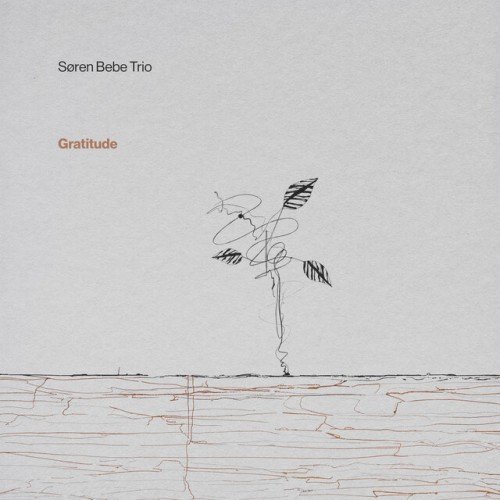
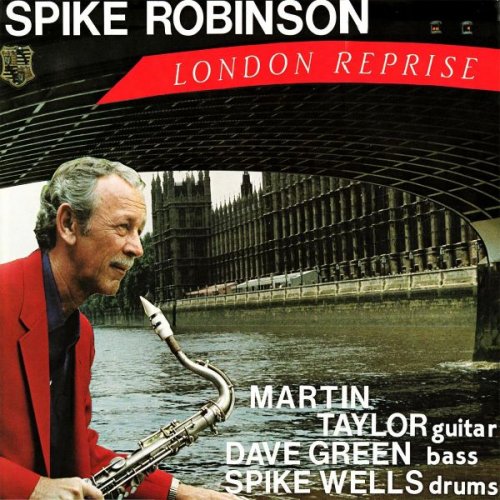
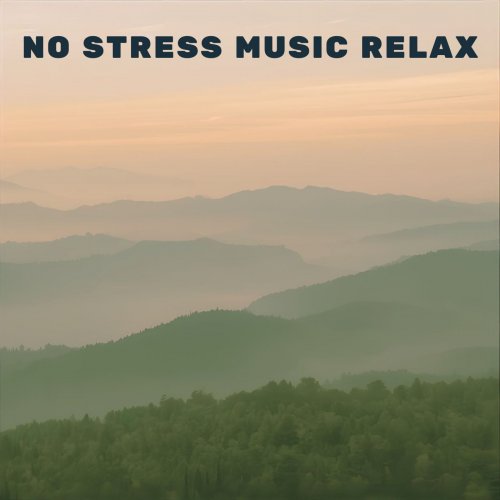
![Quinsin Nachoff - Patterns from Nature (2026) [Hi-Res] Quinsin Nachoff - Patterns from Nature (2026) [Hi-Res]](https://img.israbox.com/img/2026-02/27/85nl7kuvtne1twyima48wpdro.jpg)

![Marius Neset - Time to Live (2026) [Hi-Res] Marius Neset - Time to Live (2026) [Hi-Res]](https://www.dibpic.com/uploads/posts/2026-02/1771945711_folder.jpg)
